5. The Piano Teacher (2011)
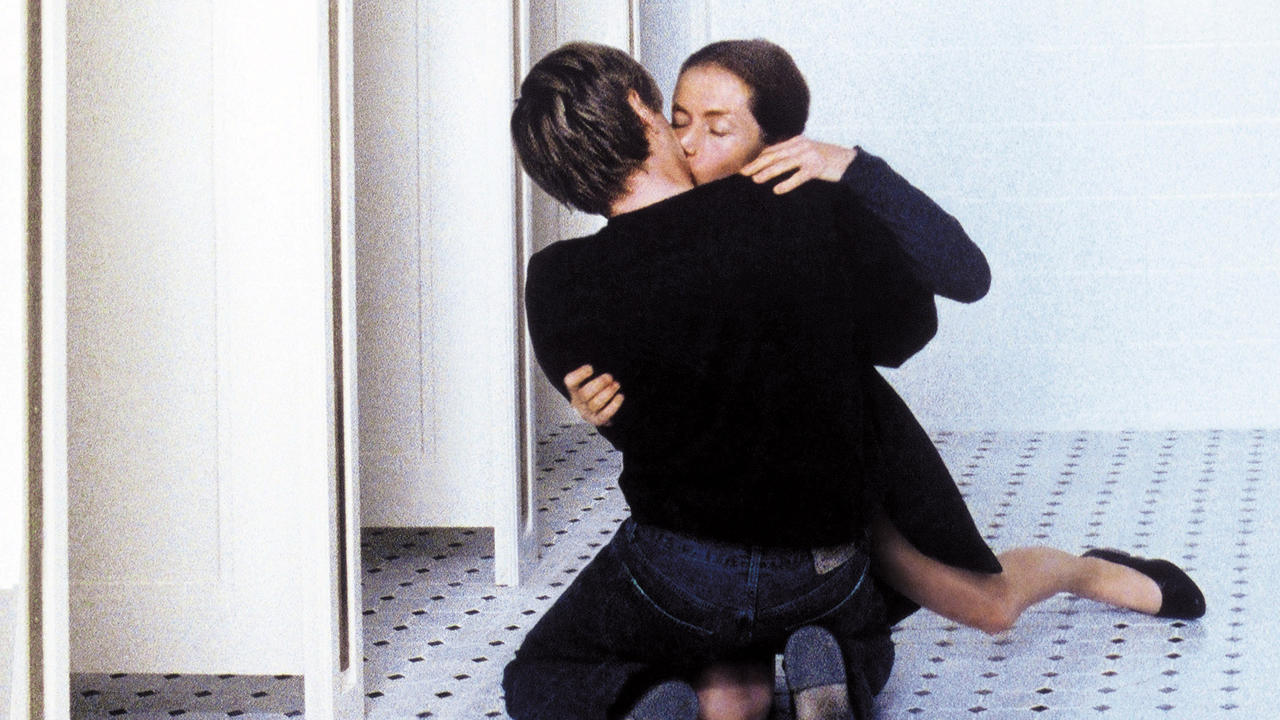
Michael Haneke makes another appearance on the list with the French psychosexual drama, The Piano Teacher (2011). Romance in the film comes with a sadomasochistic twist, courtesy of the incredible Isabelle Huppert as Erika Kohut, a strict piano teacher with taboo sexual desires. Erika’s cravings for dominance and submission are intensified after meeting a piano student named Walter Klemmer (Benoît Magimel).
The heartbreaking scene of the film occurs after Erika has given Walter a list of accepted masochistic fantasies for the two to partake in. Walter is disgusted by this, as he is disturbed by a woman having such thoughts regarding sex. However, the scene that comes later is one that tears away Erika’s consent and control. Walter, frustrated with Erika, exerts his masculinity and power by raping and violently beating her. Without Erika’s consent, the act is no longer sexual nor romantic in her eyes.
4. Brief Encounter (1945)
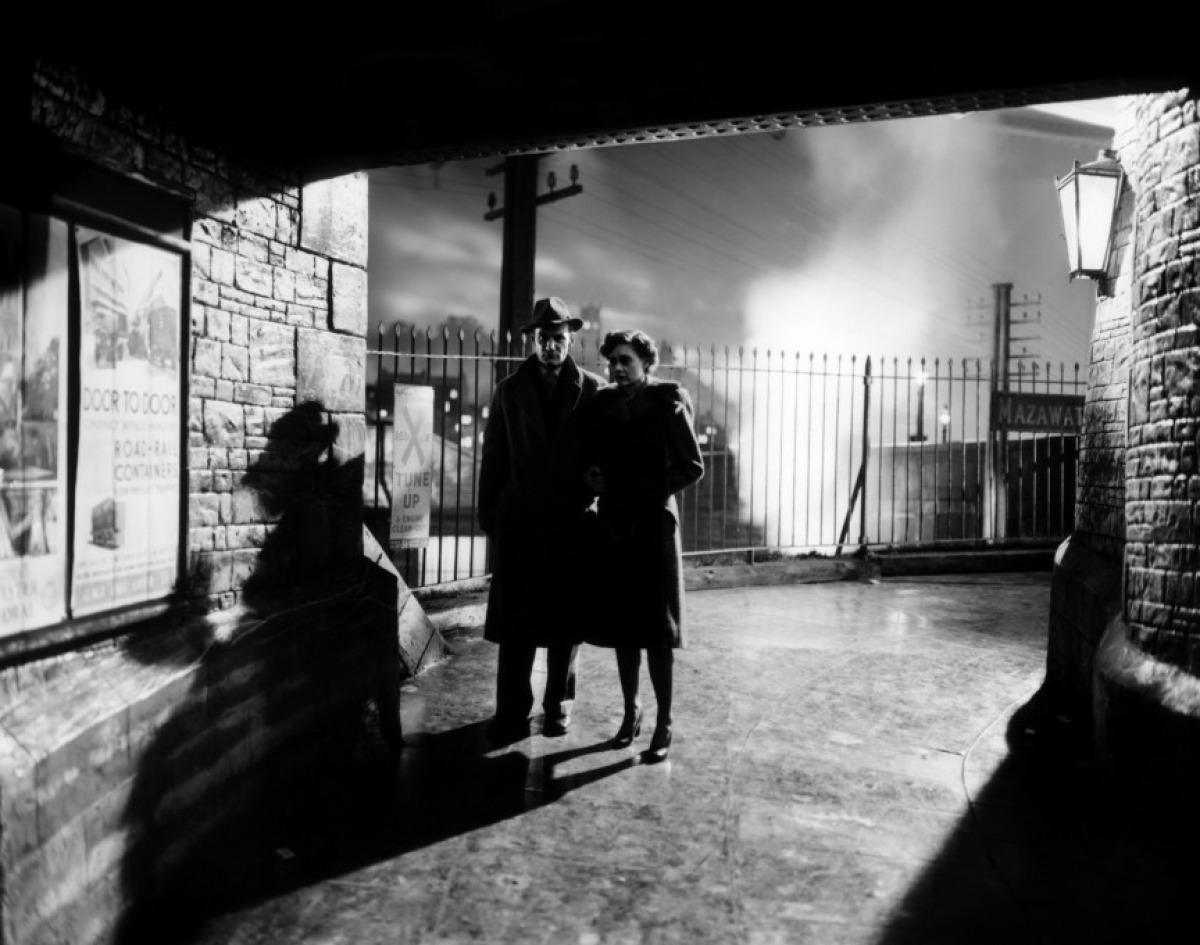
David Lean’s British drama, Brief Encounter (1945), is widely considered one of his best works. With a cast of modest stars, Brief Encounter (1945) introduces Laura (Celia Johnson) as a bored housewife, lacking variety in daily routine right before World War II. On Laura’s typical train ride home, she unexpectedly meets a married doctor named Alec (Trevor Howard).
The two form a strong connection and soon a romantic relationship blossoms. Throughout the film, the two are challenged by lies, outsiders, and judgement, and finally the fear of being caught by their spouses. After assessing the danger, Alec agrees to take a job in Africa with his brother.
The heartbreaking scene for this film occurs during Laura and Alec’s last moments together on the train. The two are interrupted by Laura’s loquacious friend, oblivious to their inner turmoil and heartache. Laura and Alec must endure their final moments together in silence, to not give away their love for another.
Alec secretly touches Laura before leaving the train and holds her gaze before departing. Laura, hoping to see Alec again, rushes onto the platform and realizes her missed opportunity. After debating suicide, Laura returns home to her understanding husband and begins to cry in his arms.
3. Amour (2012)
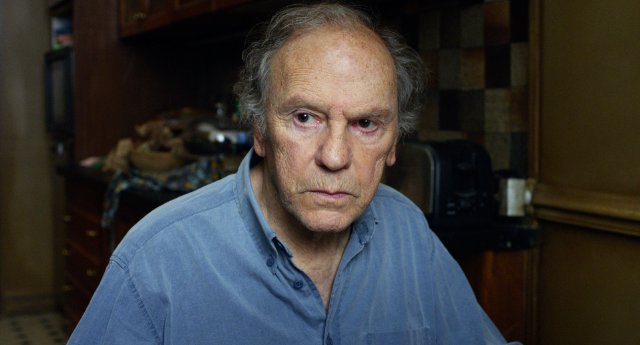
Michael Haneke’s 2012 French tragedy, Amour (2012), tells the story of retired married couple Georges (Jean-Louis Trintignant) and Anne (Emmanuelle Riva), and the events leading up to Anne’s death from a stroke. Amour (2012) has a raw tenderness enclosed in its tear-jerking scenes, most notably from Georges as he attempts to remain loyal to his demented wife.
The most heartbreaking scene in Amour (2012) comes after Georges is sharing a childhood memory with Anne to calm her down. No longer wishing to see her suffer, and most importantly, staying true of his promise to never put her in a nursing home, Georges smothers Anne with a pillow.
The sadness of the film is only magnified when Georges is seen leaving the home, with his feelings open as to whether he has left in regret, relief, or mourning.
2. La Notte (1961)
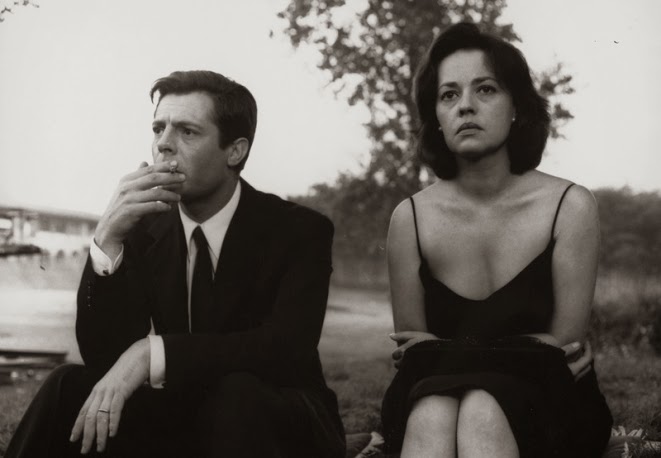
Directed by Michelangelo Antonioni, La Notte (1961) creates a modern portrait of love and romance. The film tells the story of an emotionally distant married couple that loses touch due to a lack of communication.
The most heartbreaking scene in La Notte (1961) occurs in the last minute of the film. Giovanni (Marcello Mastroianni) attempts to kiss Lidia (Jeanne Moreau) and she says to him, “No! I don’t love you anymore! And you don’t love me anymore either”. Giovanni desperately continues kissing her and tells her to, “be quiet” and “no, I won’t say it”.
Lidia eventually gives in to his kissing, but there is sadness in their shared moment, and it is unclear if they are saying goodbye to their marriage or trying to move past the pain.
1. The Umbrellas of Cherbourg (1964)
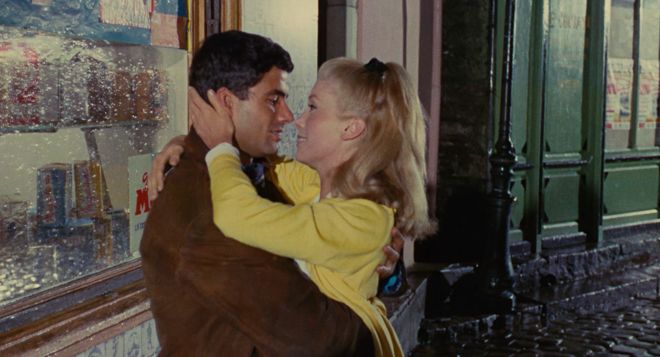
Directed by Jacques Demy, The Umbrellas of Cherbourg (1964) proves that not all musicals are saccharine soaked and happy-go-lucky. Despite the pastel colors, charming streets, and nostalgic dress, The Umbrellas of Cherbourg (1964) is a bittersweet opera veiled by French musicality.
Broken up in three parts, the film tells the story of Geneviève (Catherine Deneuve) and Guy (Nino Castelnuovo), and how their puppy love was torn apart by the call of war.
Geneviève, now pregnant with Guy’s child, promises to wait for his return. Dire times and lack of correspondence from Guy, push her to marry another man in his absence. Upon Guy’s homecoming, his despair leads him to marry another woman and move on with his life.
Although The Umbrellas of Cherbourg (1964) is rife with heartbreaking scenes, the real gut-wrencher occurs at the end of the film. After not having seen each other for years, Geneviève pulls into Guy’s gas station unknowingly and the two are magnetized to each other once again. Only this time, the words are strained and it is unclear whether or not they still pine for each other.
What makes the scene especially heartbreaking is the fact that both have children that they have named Françoise/François, the name they had both chosen to give their baby before Guy was sent to war.